Etruscan Blood Read online
Page 19
***
He was silent at lunch. It was cold; they never heated this room, and darkness lurked in the corners. He felt he'd disappointed both his grandmother and the tutor. He'd disappointed his mother, too; but that went without saying; every time she looked at him, she remembered Arruns, and wanted the child to make up for the father's absence.
They ate the same as every day; spelt porridge, with dried fruit from last season crumbled into it. There was no meat; there never was any meat, unless one of the chickens had stopped laying, and then Ramutha would have it strangled by the one servant they had left, who was kitchen maid and bodyservant and errand runner, and everything else, and would have left, only (like Ramutha) she was too old to change. There would be roasted chicken on the first day, then the stringy remains boiled with the spelt porridge the next, and the bones left in a stock with beans the day after.
The silence between them grew until he felt it would burst his eardrums. He'd never been so aware of the sounds of his own eating; the clamping of his jaw, the liquid sound of food moving about his mouth. He was amazed that his mother and grandmother couldn't hear it. No one said a word.
Every afternoon till now he'd sat with his mother, but today he couldn't bear it; he needed to be alone with the thoughts swirling in his head. He knew the house, perhaps better than any of the women; he had found his way into every locked room, except one, and through the disused passage to the outhouses, roofs half fallen into ruin. It was to the furthest of these that he made his way, clambering up over a fallen beam to the small loft. No one would find him here. Through the roof, he could see a small patch of grey sky.
He wanted to think about the idea of the world not being there; of there having been something before the world. And for a moment, he considered the idea of what there had been before he had been born; had the world existed before then, or had it been born, bright and new, when he opened his eyes? But as he wriggled further and further into the age-paled straw, and began to feel the warmth, his thoughts slipped away from him like writhing elvers, and he started daydreaming of those other worlds made by chance or coincidence, those infinite worlds.
In one of those worlds, he thought, he had a father. In one of those worlds, his father would turn out to have been not a poor trader from Tarchna, but the son of a lucumo, a resplendent prince. In one of those worlds, perhaps, his grandfather would send for him; a messenger would arrive, a young man as beautiful as a god, on a fine horse, with rich presents for the house, and would carry Aranthur off to his father's palace.
He'd asked Ramutha about his father, a few times, but she didn't know much about him. He came from Tarchna, he was a trader in metalwork, he would have been handsome if he hadn't had a mole at the corner of one eye. He was well spoken and elegant in his ways.
“He must have been a prince,” Aranthur said, pleased with his deduction.
“If so, he was a poor one.”
“He must have hidden a great treasure somewhere,” Aranthur insisted, thinking he would go and look for it among the rambling outhouses and in the dust-ridden rooms that hadn't been used since grandfather Vestiricina's death.
“He probably had nothing.”
.
“Mother says his father was a great man.”
“He'd hardly seduce her by saying he was a pauper.” Her voice was acid. Then, as if she realised she had hurt him, she reached across and grasped his shoulder with one bony hand. “I'm sorry, Aranthur, but that's the way it was. He had very little; a few bronze items, nicely made, for his trade, and some old bone dice.”
“Bronze!” Aranthur jumped up, knocking her hand off his shoulder. “A sword! A helmet!”
Ramutha smiled, but it was a twisty smile, one that could become a frown if you looked hard enough. “A half-made dagger sheath, and a little bronze horse. You can have them if you like.”
The scabbard was a poor thing, shaving-thin slips of bronze each side of the wooden body; but the little horse was a lovely thing, its neck arched proudly and its mane standing stiffly up, as if it were about to buck and leap in the air. Aranthur kept it by his bed; as soon as he woke, his hand would steal out of the covers to caress the cold bronze till it warmed, and the bronze gleamed as if polished. He might have no memories of his father, but he had this; the only horse he was ever likely to own.
As for his mother, she was always talking about his father, but nothing she said made any sense; she was either crying or raging, and she kept trying to drag up those memories that wouldn't come. He thought sometimes that he felt them, like worms wriggling in his stomach, and if he didn't stop her, his mother would plunge a hook into his guts and pull them up.
“Your father's parents didn't approve. They killed him, you know. They killed him. He'd never have come to Tarchna if it hadn't been for his father. He told me once that he could never do enough for his father; so he'd come here, to make a life on his own. The man was a slave-driver. Imagine! To kill your own son!”
He'd started off believing everything his mother said; now he was not so sure. Had he become more aware of her myth-making as he grew older, or had his mother's madness grown with time? He wanted to know about his real father; how tall he was, what he liked eating, how he spoke and laughed and walked. He didn't want her stories of the man killed by his tyrant father, or poisoned by rivals (that was another version).
He wanted above all to know whether his father had loved him; whether his father would have been proud of him. And that he'd never know.
In another world, somewhere in the multiplicity of universes his tutor had spoken of, another Aranthur had a father. Here, he had a bronze horse and a scabbard that had never been finished. But he could still dream that this might be the world in which his grandfather was a lucumo, in which his grandfather sent riders to scour Etruria looking for him. And in the warm glory of the daydream, and the warmth of the straw around him, his eyelids began to droop.

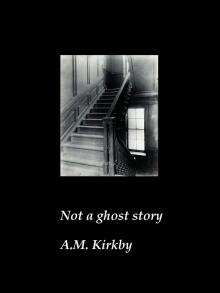 Not a Ghost Story
Not a Ghost Story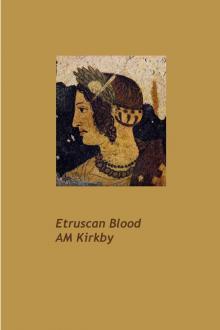 Etruscan Blood
Etruscan Blood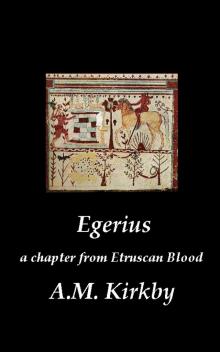 Egerius
Egerius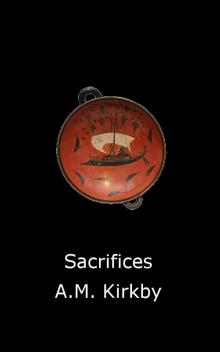 Sacrifices
Sacrifices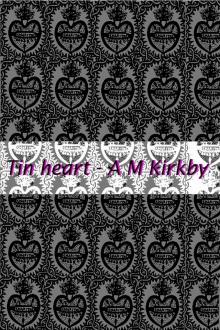 The Tin Heart
The Tin Heart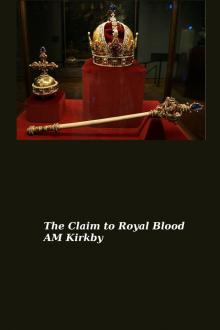 The Claim to Royal Blood
The Claim to Royal Blood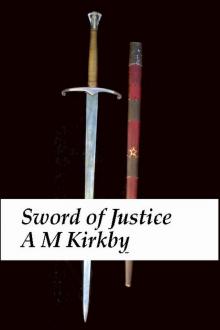 Sword of Justice
Sword of Justice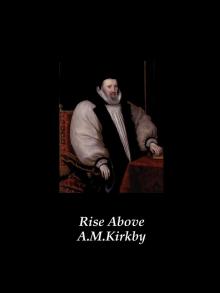 Rise Above
Rise Above